There are many reasons why – for lots of people – the holidays are a stressful time of year and may affect some people negatively. Work stress could pile up at a time when many people are out of the office, travel plans could become hectic and cumbersome, or the thought of having a house full of people could send chills up their spine.
 For many people in the Medicare population, the holidays can be a time of stress and sadness for other, more emotionally charged reasons. The season might bring up memories of years past and those who are no longer here to celebrate. They could highlight a lack of independence when the senior is unable to attend an event due to inaccessibility or lack of resources. Retired individuals could feel frustrated by having to live on a fixed income and no longer being able to be the one hosting the events.
For many people in the Medicare population, the holidays can be a time of stress and sadness for other, more emotionally charged reasons. The season might bring up memories of years past and those who are no longer here to celebrate. They could highlight a lack of independence when the senior is unable to attend an event due to inaccessibility or lack of resources. Retired individuals could feel frustrated by having to live on a fixed income and no longer being able to be the one hosting the events.
Compounding the issue is the fact that while up to 20% of the 65 or older population of the United States have a diagnosed mental health or substance use condition, mental health issues are underrecognized and underdiagnosed. One of the reasons for this is that many people are under the impression that conditions such as depression are simply part of aging. Another is that older generations are more reluctant to bring up concerns about their mental health with their primary care physicians or family members.
So, with all of that in mind, how can you support the mental health of your Medicare population through the holiday season and beyond? Here are some suggestions:
1. Express Compassion
It’s important to remember that one of the things that is most stressful to older adults in general is that they’re either anticipating the loss of autonomy or recognizing that it’s already happened. And during the holiday season this can be exasperated by requiring rides to events or not being able to enjoy themselves the way they used to. Therefore, when approaching someone about concerns for their health – physical or otherwise – it’s important to not leave them with the impression that you’re nagging. Approach the situation from the standpoint of being genuinely concerned and wanting to provide any assistance that you can, rather than repeatedly telling them to book a doctor’s appointment, for example. Offer to bring them to their appointments or even attend with them.
2. Be Supportive
Once you’ve expressed your concerns, offer your support – and mean it. If you’re prepared to address the issue then be prepared to help by offering to work with them to find the appropriate doctor, arrange for transportation to and for appointments, help them set up their prescription mailing service so they don’t have to worry about heading out to the pharmacy, et cetera. During the holidays seniors may find it especially helpful if you offer to help them (or even complete!) their gift shopping for them. If Grandma has traditionally hosted a large New Year’s Eve celebration, point out the benefits of having a family member host or undertake set-up and clean-up duties.
3. Offer Resources
If it’s possible, provide resources on things like meditation, stress management, a healthy diet, exercise, and sleep hygiene. Some older individuals may not be especially receptive to these types of resources – especially anything that seems particularly “new age” (here’s looking at you, meditation) – but these are interventions that are fairly accessible to anyone regardless of their socioeconomic status. A lot of community senior centers provide useful resources (and knowledgeable staff) as well as a robust calendar of events. These are especially great places to check out for festive gatherings and activities to help seniors celebrate the season.
4. Encourage Annual Screenings
Finally, work to instill the benefits of regular screening of physical and mental health to your Medicare population. Health risk assessments (HRAs) are a great way for anyone – but especially older adults whose health may be changing fairly rapidly – to get a handle on their health risks as they compare to their perceived health status and actual measured health metrics. The annual wellness visit (AWV) is an ideal time to review HRA results and help Medicare members map out a plan to manage stress and loneliness during the holidays and throughout the year.
Learn more about HRAs by downloading our whitepaper, The Ultimate Guide to Health Risk Assessments below:








